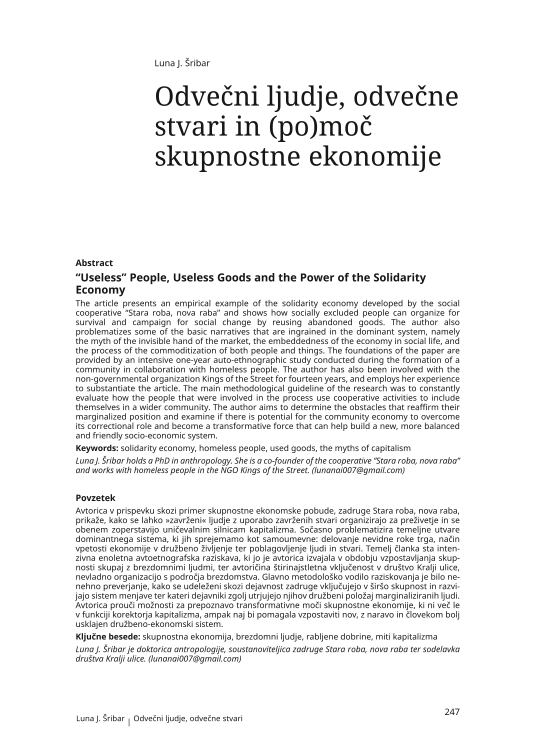The article presents an empirical example of the solidarity economy developed by the social cooperative “Stara roba, nova raba” and shows how socially excluded people can organize for survival and campaign for social change by reusing abandoned goods. The author also problematizes some of the basic narratives that are ingrained in the dominant system, namely the myth of the invisible hand of the market, the embeddedness of the economy in social life, and the process of the commoditization of both people and things. The foundations of the paper are provided by an intensive one-year auto-ethnographic study conducted during the formation of a community in collaboration with homeless people. The author has also been involved with the non-governmental organization Kings of the Street for fourteen years, and employs her experience to substantiate the article. The main methodological guideline of the research was to constantly evaluate how the people that were involved in the process use cooperative activities to include themselves in a wider community. The author aims to determine the obstacles that reaffirm their marginalized position and examine if there is potential for the community economy to overcome its correctional role and become a transformative force that can help build a new, more balanced and friendly socio-economic system.



